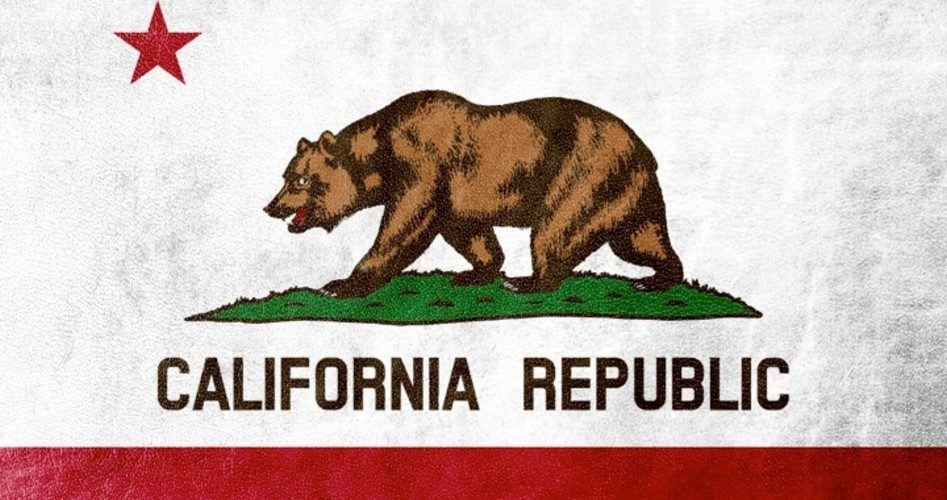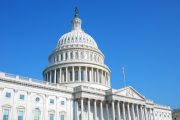
Podcast: Play in new window | Download ()
Subscribe: Android | RSS | More
California Secretary of State Alex Padilla announced Monday that the state’s Democratic Party is going to allow registered independents — 28 percent of the electorate in the Golden State — to cast votes in the Democratic 2020 presidential primary. But the 5.6 million independent voters will not be allowed to vote in the Republican presidential contest. It is up to each party to decide whether to allow non-party members to vote in the presidential primary.
This continues the pattern of recent presidential primaries held in California.
Except for the presidential primary, held every four years to determine which candidate receives the votes of nearly 500 delegates at the 2020 Democratic National Convention and delegates to the Republican National Convention, California uses what is known as a “Jungle Primary.” In a Jungle Primary, all candidates, regardless of party affiliation, run in one primary, with the top two vote-getters advancing to the general election if no candidate receives a majority of the vote.
As California has become increasingly Democratic statewide, some contests do not even have a Republican on the general election ballot. In fact, California’s legislature even passed a law barring presidential candidates who do not release their tax returns from even appearing on the primary ballot. A federal judge has blocked the law for now as unconstitutional (as the U.S. Constitution sets the qualifications for presidential eligibility, not state legislatures), but California is appealing. Since President Donald Trump has refused to release his tax returns, it is transparently obvious that the law was designed specifically against Trump. The Constitution requires that a person be a natural-born U.S. citizen, at least 35 years of age, and a resident of the United States for a minimum of 14 years before being able to serve as president. It says nothing about releasing tax returns, of course, as the federal income tax was not even adopted until 1913.
In other words, if Trump is kept off the ballot next year, Republican voters will not have anyone to vote for in the presidential primary, unless other Republican presidential candidates make the run. This would most likely have the effect of depressing the Republican vote even more in a state which has veered sharply to the Left in recent years.
Independents are generally regarded as more “moderate” in their political ideology, with the conventional wisdom being that a person who is not motivated enough to identify with one of the two major political parties probably does not have strong political views. However, Paul Mitchell of Political Data (a business that buys and sells voter information) argues that independents in California tend to be younger and even more left-leaning than the rest of the Democratic Party electorate.
California will hold its primary on March 3 of next year, as part of what is dubbed “Super Tuesday,” a day in which several states are holding primaries. If Mitchell’s assertion is true that California’s independents are more progressive, then one would think it would help candidates such as Senator Elizabeth Warren of Massachusetts and Senator Bernie Sanders of Vermont.
Other political parties that are inviting independents to vote in their primaries include the Libertarian and American Independent parties. In contrast, the Green Party and the Peace and Freedom Parties, both far-left political parties, are not going to allow independents to cast ballots in their primary.
Many claim that jungle primaries — such as those used in California and Louisiana — make it more likely that more moderate candidates will emerge for the general election, as opposed to a “closed” primary in which only those registered in the party can vote. However, jungle primaries have also led to situations such as what happened in Louisiana back in the 1990s. In that governor primary, a Democrat, Edwin Edwards, and a Republican, David Duke, were the top two vote-getters in that state’s jungle primary.
Edwards had been indicted before and acquitted, and probably could not have actually won a Democratic primary. Duke was a leader in the Ku Klux Klan, and he most likely could not have won a Republican primary. But both candidates had enough votes to finish first and second in the jungle primary to face off in the general elections. That led to some interesting car stickers, such as “I’m Voting for the Crook over the Bigot.” In the end, Edwards won, and was later indicted again, and convicted.
The system used by California also tends to perpetuate the power of the dominant political party — in this case, the Democrats — as voters often will vote for a candidate of that dominant party, hoping to have more influence over the final outcome.
If Trump were actually kept off the ballot — which is unlikely — the “winner” of the Republican delegates from California would probably be a Trump critic, which could potentially be embarrassing to the president, which was probably the goal of the law passed by an overwhelming Democrat majority in the California Assembly.
Steve Byas is a university history instructor and author of History’s Greatest Libels. He can be contacted at [email protected]



